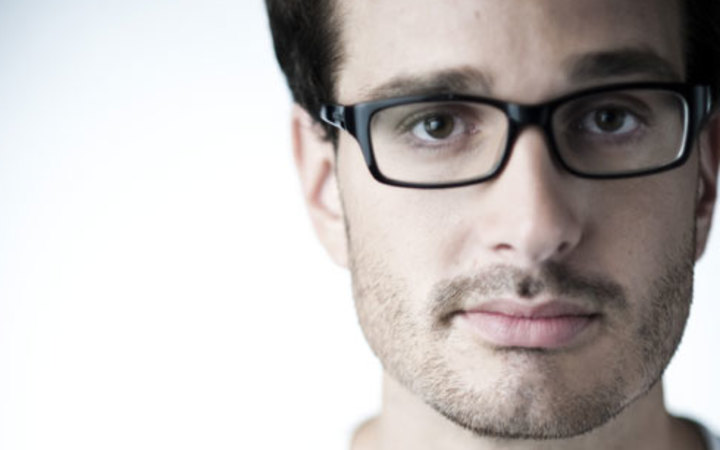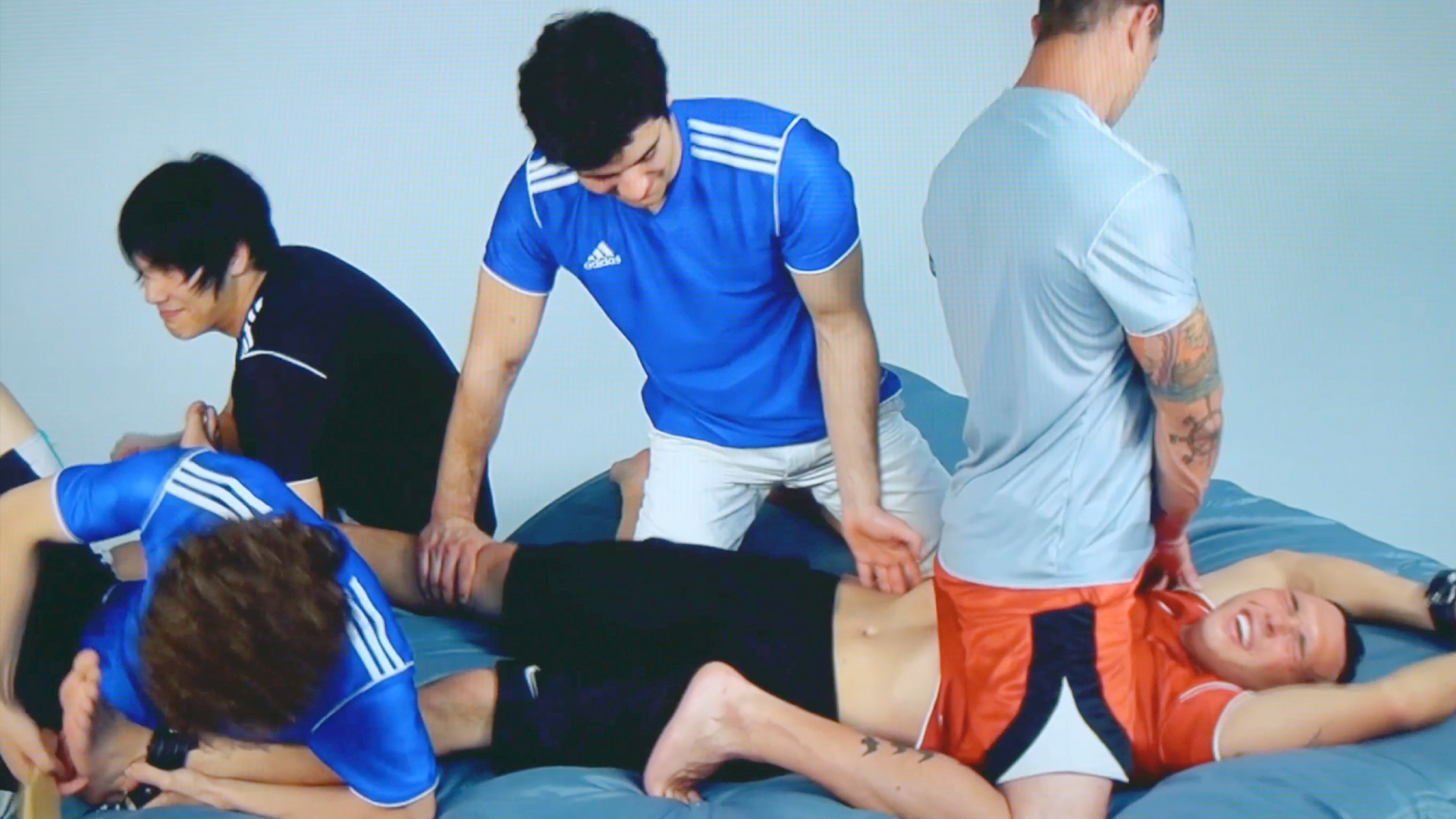David Farrier is well-known light entertainment TV reporter from Auckland. When he heard that athletic young New Zealand men were being flown to Los Angeles to take part in "competitive endurance tickling" he thought he had found his next quirky story. What he discovered was a tale of legal intimidation, online harassment and blackmail much darker than he could ever imagine. The story quickly outgrew the two-minute news segment to become Farrier's first documentary, Tickled.
Watch:
Vice interviews David Farrier
A New Zealand journalist and documentary maker has uncovered a network of sexual predators who are targeting children on YouTube, and he says the website is doing nothing to shut them down.
The predators operate by posting "challenges" for children to perform on camera.

David Farrier
The challenges, on the face of them, seem innocent enough but they are actually catering to niche fetishes.
RNZ interviews David Farrier:
'They just think it's a funny kind of video'
Questions:
Split into pairs. Student A listens for odd numbers. Student B listens for even numbers.
Student A
1. "The challenges, on the face of it, seem innocent enough, but are actually catering to niche fetishes..."
What do the phrases in italics mean?
3. Who wants "..to raise the alarm" about what?
5. What is microphilia?
7. What exactly did David's source "stumble on" on You Tube?
9. How are these sexual predators tapping into children?
11. How do the adults disguise themselves?
13. "It's happening in plain sight" - what does he mean?
15. When did You Tube decide to take You Tube accounts offline?
Student B
2. What was David's Oscar-nominated documentary Tickled about?
4. When discussing Tickled, what does David mean when he says, "you know, there was one bad egg"?
6. "reach out to ... to call sb out ... to go beyond the bounds... stumbled on" What do these 3 phrases mean?
8. What are "crush" and "macrophilia" fetishes?
10. what exactly makes the videos problematic, in David's opinion?
12. What happens after the child posts a video?
14. According to the Interviewer, what 2 kinds of online behaviour should kids be alert to?
16. What makes it hard for You Tube to delete the videos?
After listening get together and discuss the answers. Listen again if necessary.
Discussion
1. How serious, on a scale of 1-10, is this issue?
2. Do you think You Tube has acted correctly?
3. Why do you think You Tube was so slow to suspend the accounts of the people requesting these videos?
4. Should the police be informed of these complaints? What could they do about it?
5. Have you ever participated in a video challenge?
6. Have you ever felt unsafe online?
7. What are some ways parents can keep their kids' online activities safe?
Questions:
Split into pairs. Student A listens for odd numbers. Student B listens for even numbers.
Student A
1. "The challenges, on the face of it, seem innocent enough, but are actually catering to niche fetishes..."
What do the phrases in italics mean?
3. Who wants "..to raise the alarm" about what?
5. What is microphilia?
7. What exactly did David's source "stumble on" on You Tube?
9. How are these sexual predators tapping into children?
11. How do the adults disguise themselves?
13. "It's happening in plain sight" - what does he mean?
15. When did You Tube decide to take You Tube accounts offline?
Student B
2. What was David's Oscar-nominated documentary Tickled about?
4. When discussing Tickled, what does David mean when he says, "you know, there was one bad egg"?
6. "reach out to ... to call sb out ... to go beyond the bounds... stumbled on" What do these 3 phrases mean?
8. What are "crush" and "macrophilia" fetishes?
10. what exactly makes the videos problematic, in David's opinion?
12. What happens after the child posts a video?
14. According to the Interviewer, what 2 kinds of online behaviour should kids be alert to?
16. What makes it hard for You Tube to delete the videos?
After listening get together and discuss the answers. Listen again if necessary.
Discussion
1. How serious, on a scale of 1-10, is this issue?
2. Do you think You Tube has acted correctly?
3. Why do you think You Tube was so slow to suspend the accounts of the people requesting these videos?
4. Should the police be informed of these complaints? What could they do about it?
5. Have you ever participated in a video challenge?
6. Have you ever felt unsafe online?
7. What are some ways parents can keep their kids' online activities safe?

No comments:
Post a Comment